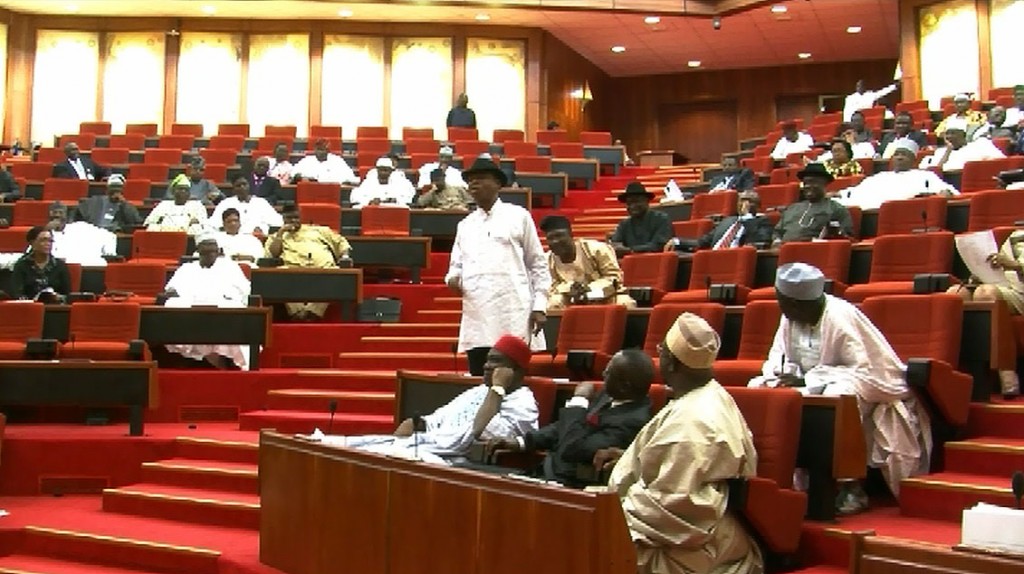The Senate Thursday, July 3, 2014 rejected the move to make presidential debates mandatory before an election on the grounds that election debates should remain outside the purview of the law.
In a similar vein, the Upper House also approved the controversial electronic voting by allowing INEC to determine the procedure for voting at an election – thereby removing the prohibition of electronic voting.
These are contained in the bill in an act to amend the Electoral Act 2010 to provide for the tenure of office of secretary, power to issue duplicate voter card, and determine voting procedure.
Leading the debate on the bill, Senate Leader Victor Ndoma-Egba( SAN), said the litmus test for a viable democratic Nigeria will be the extent to which her electoral process and laws are to promote fair, participatory and electoral participation of the electors.
“If the electoral law and legislation are weak, deficient or poorly enforced, the electoral process process will be easily subverted,” he told senators
The Senate, after a clause-by-clause consideration subsequently passed the Electoral Act.
The Senate also rejected the clause to vest the responsibility of proving the regularity of any election on INEC; it was rejected on the grounds that the burden of proof lies with the petitioner.
Also the move to empower INEC to conduct elections into the office of the President, governor, Senate, House of Representatives and state assemblies on the same day was rejected.







![Honouring a Rare Soul: Celebrating the Life of AVM Terry Omatsola Okorodudu [MUST READ] Air Vice Marshal Terry Omatsola Okorodudu](https://www.thetrentonline.com/wp-content/uploads/2026/01/Joan-and-Bidemi-Okorodudu-The-Trent-100x70.jpg)